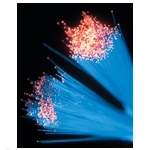 Half of the people in Connecticut could have access to gigabit service as the result of a public/private initiative launched by a consortium of 46 cities in the state. The group has issued a request for qualifications (RFQ) seeking “information and dialogue with interested parties” according to a press release issued today.
Half of the people in Connecticut could have access to gigabit service as the result of a public/private initiative launched by a consortium of 46 cities in the state. The group has issued a request for qualifications (RFQ) seeking “information and dialogue with interested parties” according to a press release issued today.
As envisioned, one or more network operators would provide funding for network construction for the initiative, to be known as the CTgig Project. “Neither the state nor the municipalities will be investing funds in the networks or Internet service provisioning, but the municipalities will contribute in-kind assets and support,” said William Vallee, state broadband policy coordinator, in the press release.
Vallee noted that the project was being undertaken to “increase competition in the Internet access market to boost the currently low levels of access speeds available in Connecticut and reduce the exceedingly high rates compared to peer states and other nations charged by the incumbents.”
Despite the barb, he noted that “incumbent telephone and cable operators are logical respondents since they are already providing Internet service across the state and they are, of course, encouraged to respond.”
Strength in Numbers
CTgig participants aren’t the first pursuers of gigabit networks to seek strength in numbers.
Issuing bid requests for gigabit services jointly is a strategy that already yielded good results for several cities in North Carolina that together persuaded AT&T to make deployments there. A similar effort is Gig.U – a group of universities that worked together to determine best practices in attracting network operators for gigabit builds. Although Gig.U participants have mostly acted individually in dealing with network builders, the initial collaborative work undoubtedly helped streamline that process.
The state of Connecticut apparently has been paying attention to the efforts to identify best practices for municipalities seeking gigabit service. According to today’s press release, the state’s favorable laws and regulations involving public rights of way (PROW) for broadband providers include:
- Statewide regulatory authority over attachments and equipment in PROW with minimal municipal regulation or fees
- A reserved attachment position on all utility poles
- A single pole administrator process to streamline management and costs for all attachers, including a statewide PROW scheduling management database
- Strictly enforced and rapid make ready deadlines
- Equitable pole attachment rates based on an FCC formula
Interested network operators have until January 13 to file CTgig responses.

